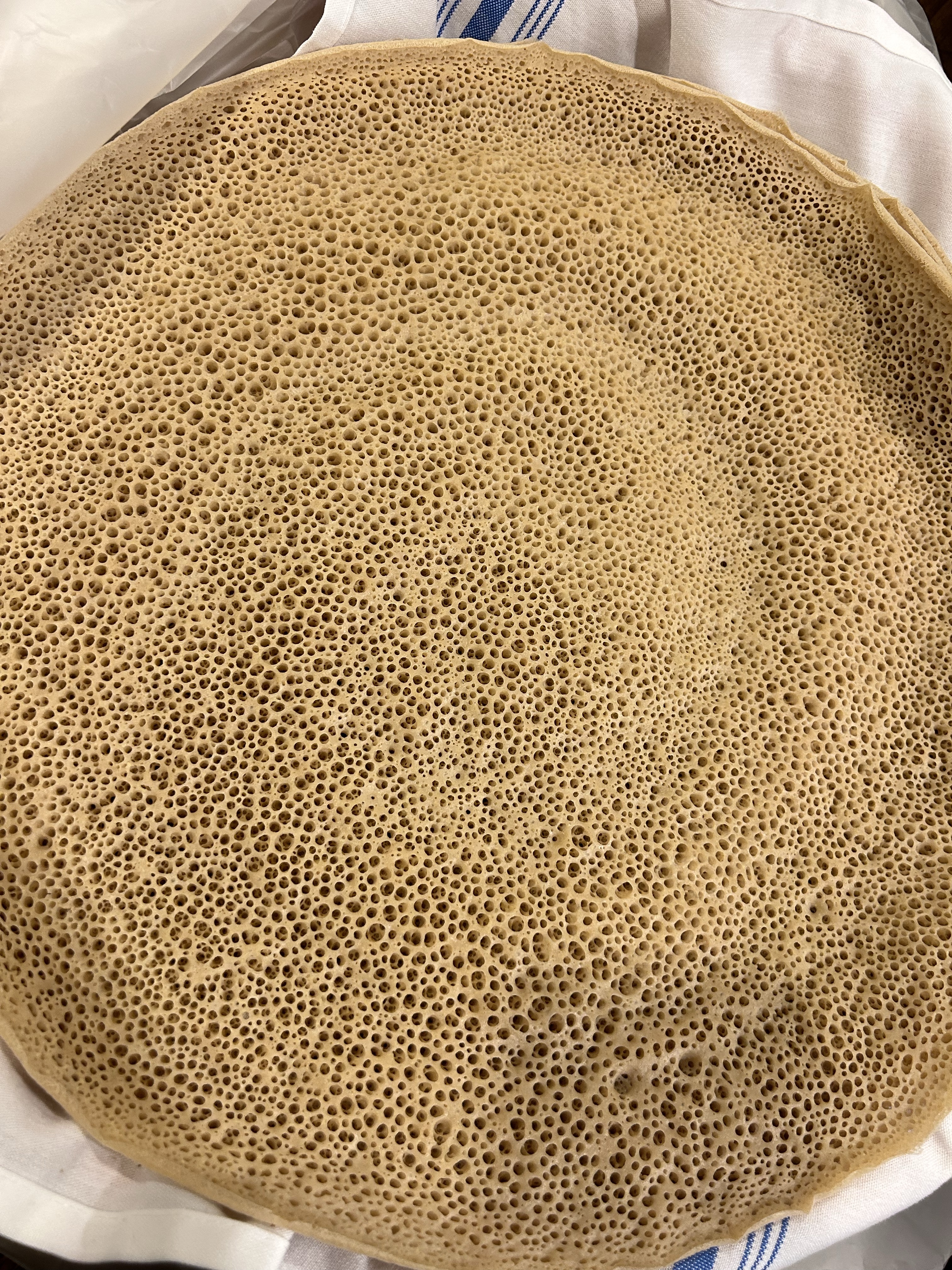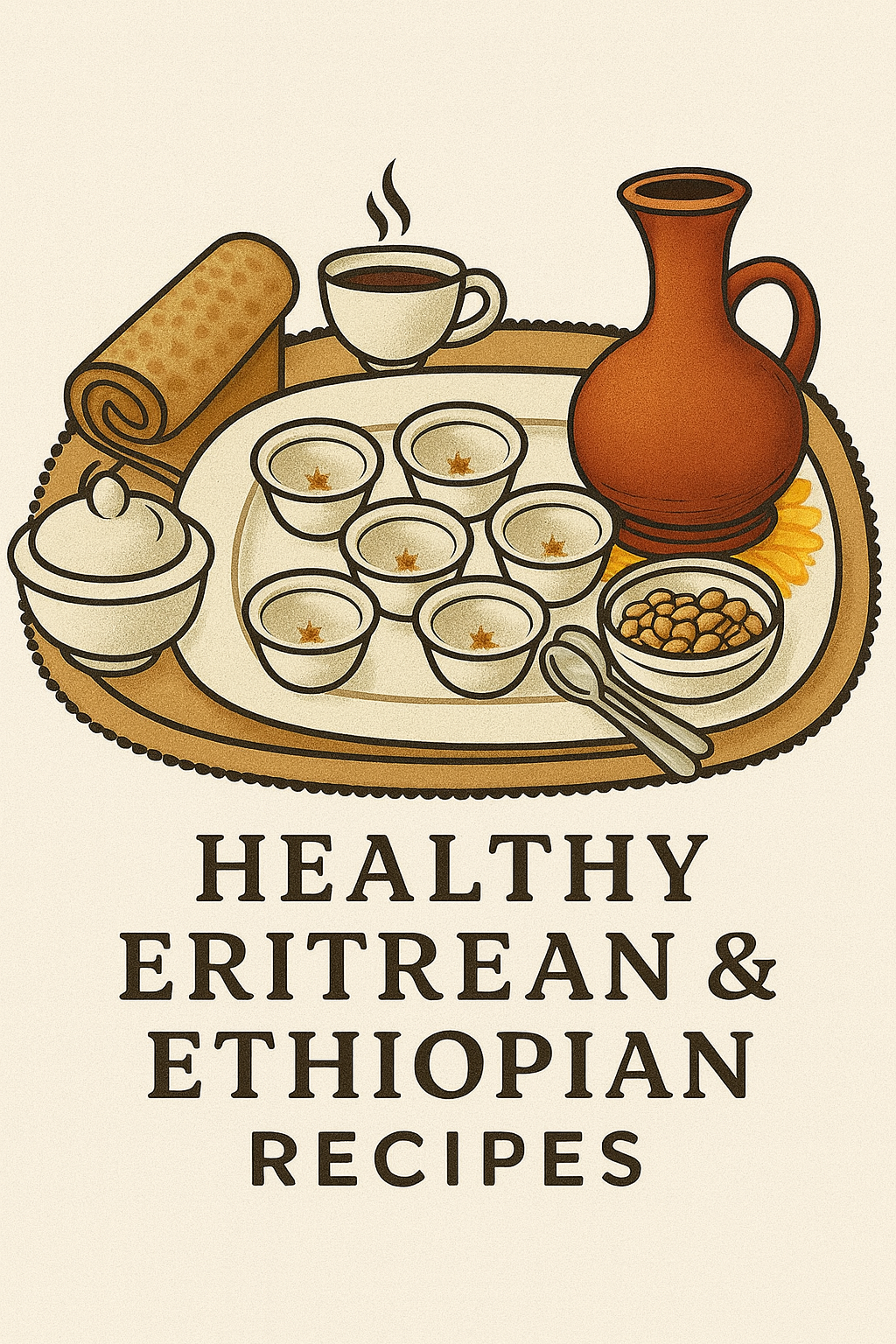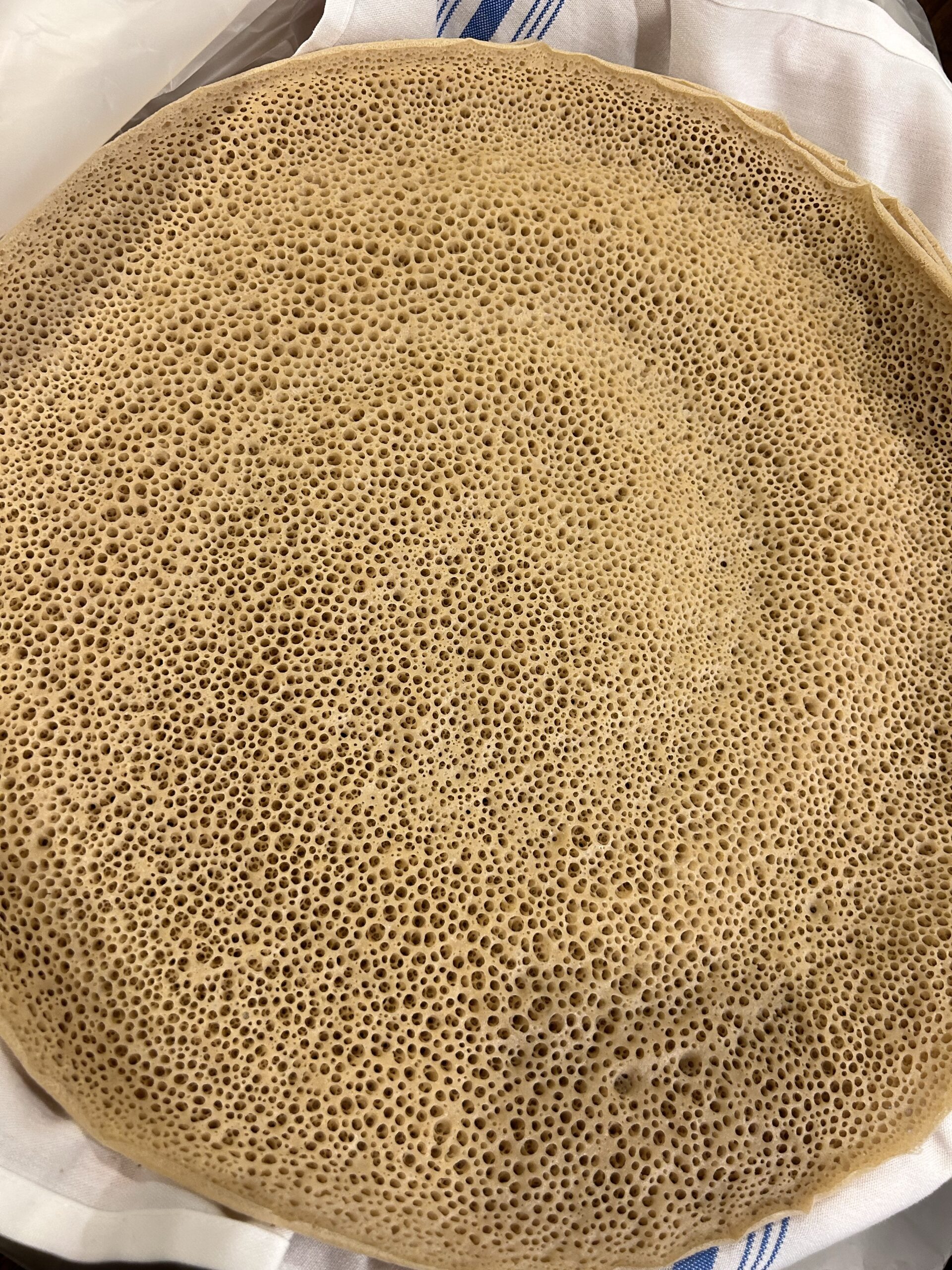In the heart of my childhood memories, the aroma of freshly baked enjera wafts through the kitchen, wrapping me in a cocoon of nostalgia. A weekly ritual, my mother’s dedication to this traditional Eritrean and Ethiopian flatbread wasn’t just about nourishing our bodies; it was a connection to our roots, a journey into the heart of our culture. As a curious child, I would sit in the kitchen, captivated by the rhythmic dance of her hands, expertly swirling batter into a perfect circle. Amidst the stories of her own childhood, the enjera-making process unfolded like a sacred tradition, leaving a permanent mark on my senses.
The magic wasn’t just in the stories; it was in the seamless circular motion of her hands, the uninterrupted flow of batter, and the final touch – a smaller enjera known as ‘chiliqa’ ጭልቃ, reserved just for me. Intrigued and persistent, I pleaded with her to teach me the art of enjera, envisioning myself effortlessly recreating the ritual that held our family together.
The day finally arrived when my mother agreed to pass on the tradition. However, my excitement blinded me to the fact that enjera-making is a meticulous process, taking anywhere from a couple of hours to a week to complete. The initial request to mix the dough was met with my younger self’s discontent; after all, I was fixated on the final product, oblivious to the steps that lay ahead.
As I grew older, the significance of those steps became clearer. Enjera-making is a journey that spans hours, sometimes even a week, requiring patience and dedication. I soon realized that the artistry lay not only in the final product but in the entire process – from mixing the dough to the artful pouring onto the hot griddle, to the delicate stacking that followed.
Now, as a parent, I find myself yearning to pass on this cherished tradition to my own children. Witnessing their eagerness to be a part of the enjera-making process, whether at the beginning or final stages, warms my heart. Even during the busiest seasons of life, their enthusiasm to devour freshly-baked enjera with a sprinkle of salt motivates me to carry on this cultural legacy.
In the midst of our hectic lives, enjera-making has become a family affair, a moment of connection with our heritage. As the fragrant aroma fills our kitchen, it serves as a reminder that traditions, like enjera, are not just recipes; they are the stories, the hands that guide, and the love that binds generations together. Each bite becomes a journey into the past, a taste of our shared history, and a promise to carry this culinary heritage into the future.



Leave a Reply